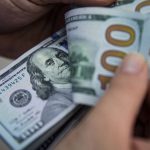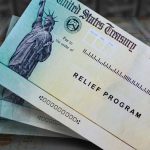Cash App, the widely used peer-to-peer mobile payment platform owned by Block Inc., is facing legal backlash after allegedly sending spam referral messages without consent. A class action lawsuit filed in Washington State claims that Cash App’s “Invite Friends” program prompted the mass distribution of unsolicited promotional texts, even to individuals with no prior connection to the app.
The lawsuit has now resulted in a $12.5 million settlement, highlighting rising tensions between consumer privacy rights and aggressive digital marketing by tech firms.
The Legal Basis of the Complaint
The lawsuit was initiated in November 2023 by Kimberly Bottoms, a Washington resident who received an unsolicited text encouraging her to download Cash App and claim a referral reward. The message, sent without her permission, formed the foundation for allegations that Cash App violated two key state laws:
- Washington Commercial Electronic Mail Act – Regulates the sending of unauthorized marketing communications.
- Washington Consumer Protection Act – Ensures fair and honest treatment of consumers by businesses.
The suit claims Cash App used automated messaging software to send mass promotional texts to individuals with Washington-based phone numbers, regardless of whether those people had consented to receive such messages. Privacy advocates quickly joined the conversation, citing this case as a major example of the growing need for corporate accountability in digital communications.
Settlement Details: Who Can Get Paid and How Much?
To resolve the dispute without a lengthy court battle, Block Inc. agreed to pay $12.5 million into a settlement fund. This money will go toward compensating affected consumers who received Cash App referral texts between November 14, 2019, and a yet-to-be-determined final date.
| Settlement Feature | Details |
|---|---|
| Total Settlement Fund | $12.5 million |
| Eligibility | Individuals with Washington phone numbers |
| Time Frame | Nov 14, 2019 – TBD (pending court approval) |
| Estimated Individual Payment | $88 – $147 (based on total number of claims) |
While payouts will be less than the $500 per-incident limit allowed under Washington law, the settlement provides a reasonable financial remedy for those affected.
How to File a Claim for Compensation
Eligible residents will receive notification emails or postcards once preliminary approval of the settlement is granted by the court. The claim process is simple and free. No attorney is required to file.
Here’s how claimants can submit their request:
- Provide personal details – including full name, mailing address, and the affected Washington-based phone number.
- Select payment method – choose either a mailed check or electronic payment via PayPal or Venmo.
- Submit the form by the designated deadline (to be announced).
As the process moves forward, consumers are urged to check their mailboxes and inboxes regularly to avoid missing key updates.
Block Inc. Denies Wrongdoing but Settles
Although Block Inc. denied all wrongdoing, the company opted to settle in order to avoid prolonged litigation and reduce legal costs. A motion for preliminary approval was filed on June 30, 2025, and a final hearing date will be set by the court to determine if the proposed settlement can be enacted.
Block maintains that its marketing efforts were compliant with state laws, but said the settlement was in the best interest of its users and shareholders.
Cash App’s History of Legal Troubles
This lawsuit is the latest in a series of legal challenges faced by Cash App and its parent company, Block Inc. In early 2025, the Consumer Financial Protection Bureau (CFPB) fined Block $175 million for failing to prevent user fraud and delays in resolving disputes. The agency cited repeated failures in customer support and protection against scams.
Back in 2023, Cash App paid $15 million to settle a separate lawsuit involving a data breach that exposed sensitive personal and financial information of thousands of users.
These incidents have raised growing concerns over user data security, fraud handling, and digital privacy practices within the fintech sector.
What Washington Residents Should Do Now
If you live in Washington and believe you received one or more unsolicited Cash App referral texts between November 14, 2019, and the final settlement date, here are the steps to take:
- Watch for official notices – Notifications will arrive by email or mail once the court approves the initial terms.
- Act promptly – As soon as the claim portal is open, submit your claim to ensure eligibility.
- Choose your preferred payment method – Decide whether to receive funds electronically or by mail.
Being proactive is key to receiving your share of the settlement. Waiting too long or missing the deadline could result in losing eligibility for compensation.
A Bigger Picture: Privacy in the Digital Age
The Cash App case underscores broader issues around digital marketing ethics, especially in an era where automated systems and aggressive referral programs are common across platforms. As technology companies expand outreach efforts, the line between consumer engagement and privacy violation has become increasingly blurred.
Legal experts say this case sends a clear message to tech firms: consent matters. Sending promotional messages without verified user permission—especially in bulk—could lead to serious legal and financial consequences.
Summary: Key Facts to Know
- Cash App faces a $12.5 million settlement over unsolicited text messages sent to Washington residents.
- Eligible individuals may receive between $88 and $147 in compensation.
- Messages were linked to the “Invite Friends” referral program.
- No attorney is required to file a claim, and the process will be free and easy.
- Notifications will be sent automatically once the court grants preliminary approval.
- Block Inc. denies wrongdoing but settled to avoid prolonged litigation.
- Other recent fines against the company include a $175 million penalty for fraud-handling failures and a $15 million payout for a data breach.





